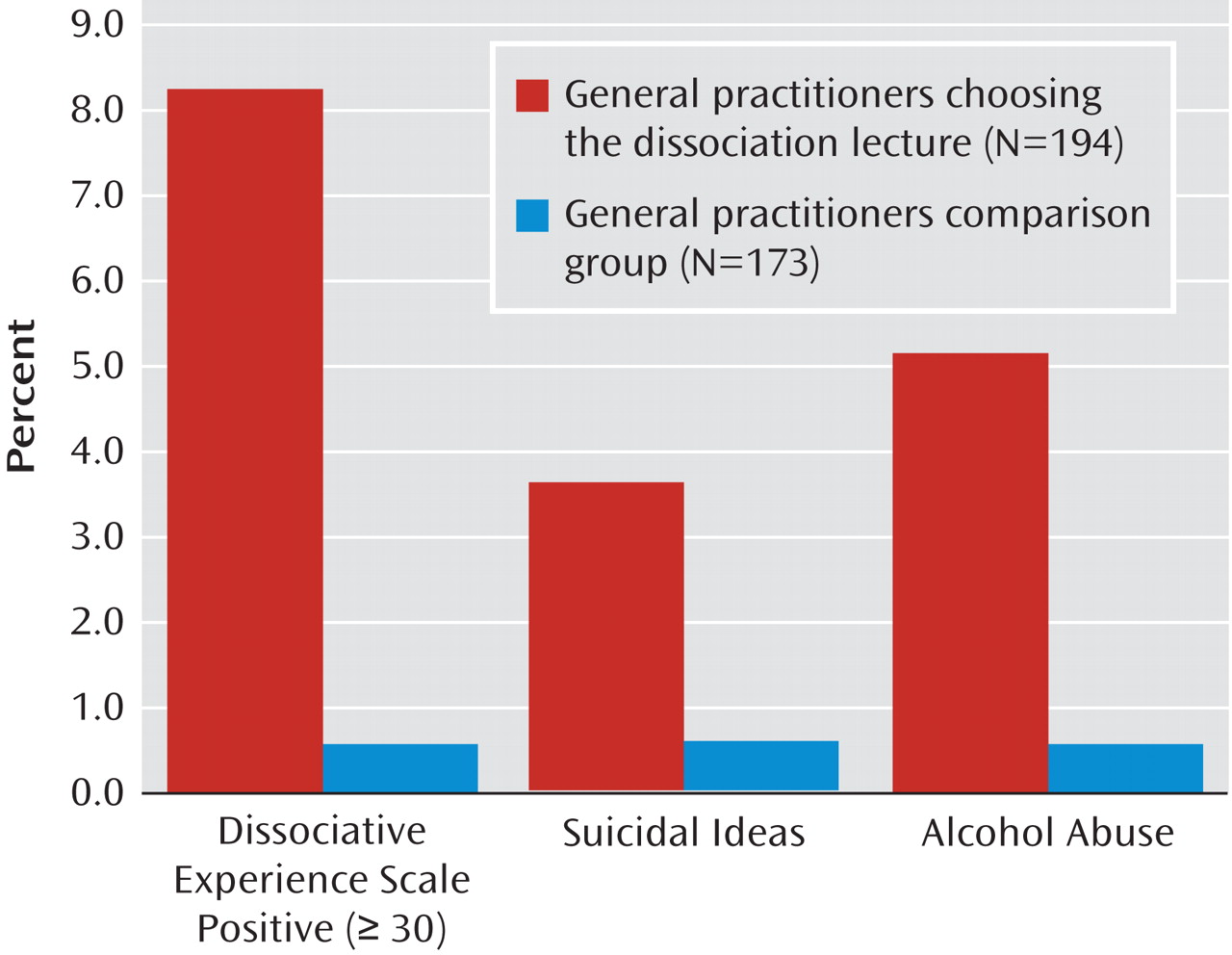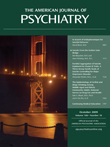To the Editor: In the present study, we measured dissociative symptoms in general practitioners who chose to attend an educational lecture on dissociation compared with those of general practitioners who selected to attend a lecture on internal medicine. We also assessed self-reported suicidal thoughts and alcohol abuse occurring during the past year.
The lectures took place during an annual medical congress in Quadrimed, Switzerland, and were part of a three-day congress, with 1,275 participants and 78 speakers, who proposed various topics. Our assessment tools included the French validated version of the Dissociative Experience Scale
(1) . The Dissociative Experience Scale was presented on a voluntary and anonymous basis to each attendee before the start of both the lecture on dissociation and the lecture on internal medicine. The Dissociative Experience Scale is a 28-item auto-questionnaire proposing a visual analogical scale, with scores fluctuating between 0 and 100. A mean score on the Dissociative Experience Scale >30 is considered significant for a pathological level of dissociation
(2) .
In addition to the Dissociative Experience Scale, an anonymous questionnaire collected information on age, sex, suicidal thoughts during the past year (yes/no), and alcohol abuse (DSM-IV criteria) during the past year. All participants were informed that the data would be for scientific use. There was no obligation to complete the questionnaire, and no compensation was provided. The study was approved by the institutional review board of the Quadrimed Congress.
We found that the general practitioners who chose to attend the lecture on dissociation (N=194) had significantly greater dissociative symptoms (χ
2 =12.176, df=1, p<0.001), more suicidal ideas (χ
2 =3.938, df=1, p<0.05), and more alcohol abuse (χ
2 =6.588, df=1, p=0.01) than the comparison group who attended the internal medicine lecture (N=173) (
Figure 1 ). We also found a significantly higher rate of completion of the Dissociative Experience Scale questionnaire (χ
2 =21.025, df=1, p<0.0001) among the general practitioners who chose the dissociation lecture (97.9%), relative to the comparison group (85.2%). Complete data on age and sex were not provided in both groups, with only approximately 60% completion. From these data, we found no significant difference between men and women, except for alcohol abuse, which was more frequent in men (χ
2 =4.950, df=1, p<0.05).
To the best of our knowledge, this is the first study to show a higher prevalence of dissociation, suicidal thoughts, and alcohol abuse among general practitioners who choose to attend a lecture on dissociation. We feel that our observations have clinical implications by increasing awareness about symptoms among these conference attendees and may be useful for diagnosis and treatment. The principal limitations of the study are related to the relatively small sample size. Further larger and longitudinal studies on this topic may be informative and useful to speakers in such sessions, who may choose to discuss the importance of self-awareness and potential treatment needs among attendees.


